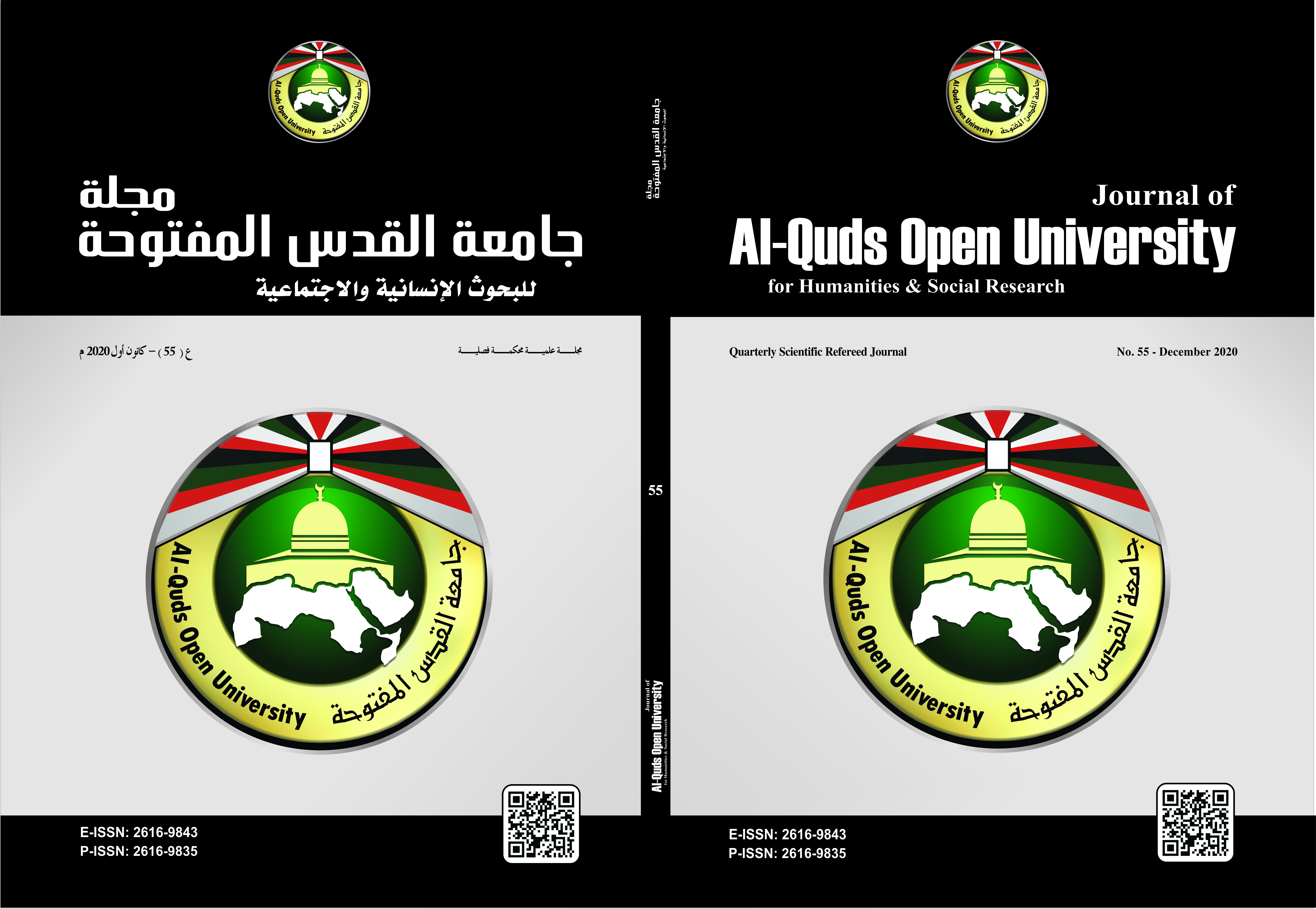E-Citizenship: A Proposed Solution for Land Ownership Problems in the Land Management Sector in Palestine
DOI:
https://doi.org/10.33977/0507-000-055-007Keywords:
e-Citizen, e-Government, Land Sector, Digital ID, Public Private Partnership-PPP.Abstract
The research seeks to find a solution for the problem faced by a large portion of Palestinians who do not have Palestinian residency nor IDs. It examines the possibility of overcoming the Oslo agreement restrictions that granted Israel the authority to issue new IDs in the West Bank and Gaza, which deprives many Palestinians from their right to a national ID. This research targets all the Palestinians in Palestine and the diaspora. It projects the benefits of new technologies and approaches to tackle the problem by utilizing and tailoring the idea of electronic residency. The research shows that some government transactions include beneficiaries that have no national IDs. The land sector was chosen to elaborate the problem and to demonstrate the application of the solution using e-citizenship. It was shown through the provided examples that the concept of e-citizenship can solve the problem of land ownership and administration services in Palestine. Thus, it can provide a solution for the research problem. In addition, the notion of e-citizenship can be applied in other sectors and can improve the reach of e-government and electronic services in Palestine.
References
The Palestinian Land Authority website, http://pla.ps/aboutUs.aspx?id=7.
West Bank and Gaza - Second Land Administration Project, Project Appraisal Document p2
Order Concerning Land Settlement and Water Regulating (West Bank (No. 291), 1968, source: Palestinian Legal and Judicial System, http://muqtafi.birzeit.edu
WEINBERGER, Peter Ezra. Co-opting the PLO: A critical reconstruction of the Oslo Accords, 1993-1995. Lexington Books, 2007.
UNRWA website,http://www.unrwa.org/palestine-refugees.
Palestinian Central Bureau of Statistics, Status of Palestinian Refugees 20/06/2016.
Statistics from the Computerized land Registration System-CLRS, Palestinian Land Authority.
Palestinian “National Development Plan 2014-2016”, pages 56,95,98.
Decision No. 17/103/02 www.palestinecabinet.gov.ps/WebSite/Upload/Decree/GOV_17/24052016120927.pdf
Nogueira, José Luiz Thomaselli, Ana Cristina Bicharra Garcia, and Luis Miguel Parreira e Correia. "e-Citizen interacting with virtual government institutions." EPIA. Vol. 13. 2007.
G. Jakisch, "E-Signature versus e-Identity: the creation of the digital citizen," Database and Expert Systems Applications, 2000. Proceedings. 11th International Workshop on, London, 2000, pp. 312-316.
Ben Hammersley, Why you should be an e-resident of Estonia,http://www.wired.co.uk/,Feb, 2015
THE E-GOVERNMENT HANDBOOK FOR DEVELOPING COUNTRIES.november, 2002
E-GOVERNMENT SURVEY 2014, page 61
E-GOVERNMENT SURVEY 2014, page 78
Avo Alender, What is Estonian e-Residency and how to take advantage of it?, LeapIn, march 2016
Ben Hammersley, Why you should be an e-resident of Estonia,http://www.wired.co.uk/,Feb, 2015
Ben Hammersley, Why you should be an e-resident of Estonia,http://www.wired.co.uk/,Feb, 2015
Impact of ICT on Human Resource Development, eGov magazine, October 2010
Gopala Krishna Behara, Policies And Guidelines For Effective e-Governance, eGov magazine Aug 2009
Ben Hammersley, Why you should be an e-resident of Estonia,http://www.wired.co.uk/,Feb, 2015
E-GOVERNMENT SURVEY 2014, page 124
E-GOVERNMENT SURVEY 2014, page 79
Joan Clos, Eurobian benchmark report 2013, ecitizenship for all, p 26
Downloads
Published
How to Cite
Issue
Section
License
- The editorial board confirms its commitment to the intellectual property rights
- Researchers also have to commit to the intellectual property rights.
- The research copyrights and publication are owned by the Journal once the researcher is notified about the approval of the paper. The scientific materials published or approved for publishing in the Journal should not be republished unless a written acknowledgment is obtained by the Deanship of Scientific Research.
- Research papers should not be published or republished unless a written acknowledgement is obtained from the Deanship of Scientific Research.
- The researcher has the right to accredit the research to himself, and to place his name on all the copies, editions and volumes published.
- The author has the right to request the accreditation of the published papers to himself.













_2.png)
_.png)
_2.png)
_1.png)
_.png)

